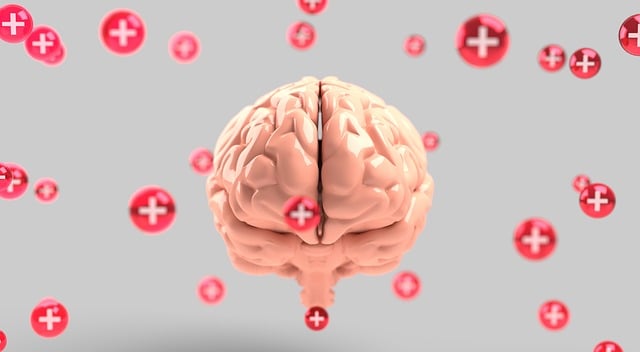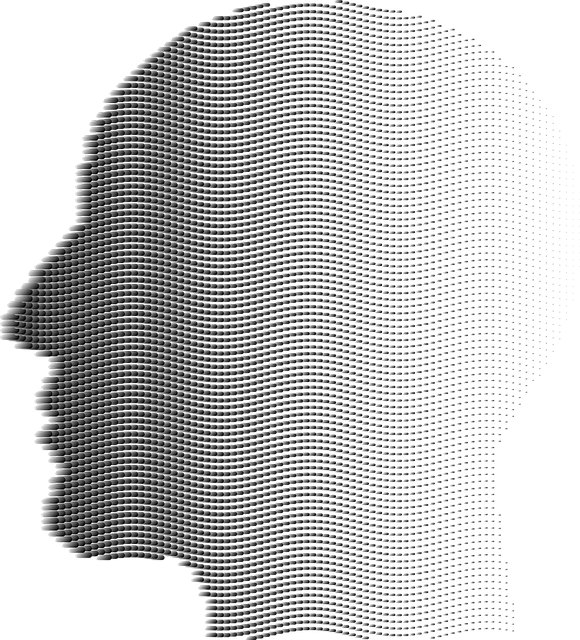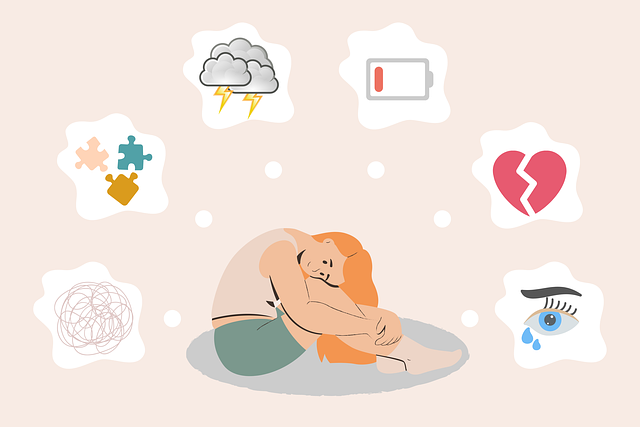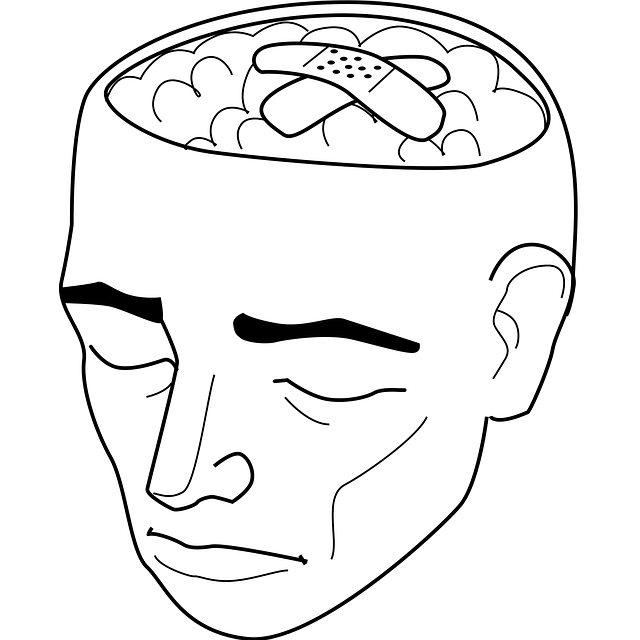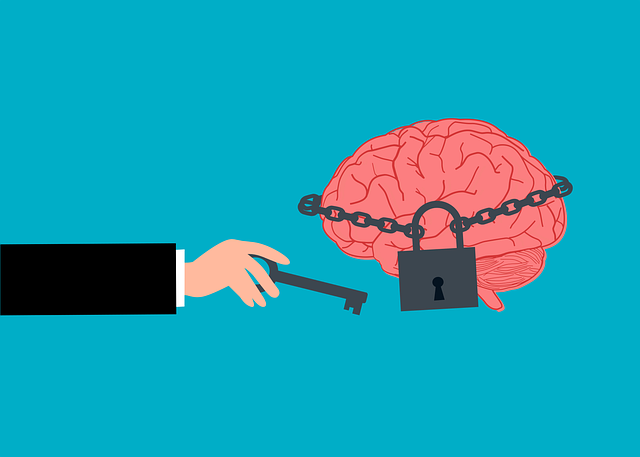Mental wellness programs utilize diverse interventions, including therapy, CBT, and online resources, to support individual mental health needs. Evaluating these programs is crucial through standardized tools, interviews, and modern technologies, gauging mental health status, service satisfaction, and coping abilities. Therapy plays a key role in understanding emotional journeys and empowering individuals with healthier thought patterns. Beyond satisfaction surveys, robust evaluations using clinical interviews and observations are vital for evidence-based care, policy analysis, and risk management. Continuous improvement strategies, including podcast series and advocacy, enhance program effectiveness over time, benefiting those seeking therapy for mental health evaluations.
Mental wellness program evaluation is a multifaceted process crucial for understanding and optimizing interventions aimed at enhancing mental health. This article delves into the critical components of evaluating such programs, including the unique role of therapy in assessment, common tools and methods, strategies to measure effectiveness, and approaches to foster continuous improvement. By exploring these aspects, we aim to equip professionals with effective techniques for appraising and refining mental wellness initiatives, leveraging therapy as a key evaluation tool.
- Understanding Mental Wellness Programs
- The Role of Therapy in Evaluations
- Common Evaluation Methods and Tools
- Assessing Program Effectiveness
- Continuous Improvement Strategies
Understanding Mental Wellness Programs

Mental wellness programs are designed to support individuals in managing and improving their mental health, encompassing various aspects such as therapy for mental health evaluations, depression prevention, emotional regulation, and coping skills development. These initiatives can take many forms, from individual counseling sessions to group support meetings and online resources, all tailored to address specific needs. Effective evaluation methods play a crucial role in understanding the impact and effectiveness of these programs, ensuring they meet their intended goals.
Evaluating mental wellness programs involves assessing changes in participants’ mental health status, satisfaction with services, and improvements in coping mechanisms. Therapy for mental health evaluations often includes standardized questionnaires and interviews that measure symptoms of common mental health disorders, such as anxiety or depression. By integrating these evaluation methods, program organizers can gain valuable insights into the effectiveness of their interventions, identify areas for improvement, and ensure that participants receive the best possible care tailored to their unique needs.
The Role of Therapy in Evaluations

Therapy plays a pivotal role in mental wellness program evaluations, offering valuable insights into individuals’ emotional states and progress. Through structured conversations, therapists facilitate self-reflection and help participants explore their thoughts, feelings, and behaviors. This process is crucial for understanding the underlying factors contributing to mental health issues and identifying areas for improvement.
In the context of a community outreach program implementation, therapy sessions can enhance self-esteem improvement and inner strength development. Therapists skilled in various techniques, such as cognitive behavioral therapy (CBT), can guide individuals toward healthier thought patterns, coping strategies, and resilience-building exercises. This not only supports participants’ mental wellness but also equips them with tools to navigate life’s challenges effectively.
Common Evaluation Methods and Tools

Mental wellness program evaluations are crucial for assessing the effectiveness and impact of interventions aimed at improving therapy for mental health. Common methods include structured interviews, self-report questionnaires, and observation scales. These tools help in measuring symptoms, functional status, and quality of life before and after implementation of mental health evaluation strategies. For instance, standardized measures like the Beck Depression Inventory (BDI) or the Anxiety Disorders Interview Schedule (ADIS) are often used to assess depression and anxiety disorders respectively.
In addition to traditional methods, evaluating mental wellness programs can incorporate innovative approaches such as digital assessments and sensor-based technologies. These modern tools offer real-time data collection and analysis, enabling more precise monitoring of symptoms and progress. Given the demanding nature of healthcare work, incorporating burnout prevention strategies for healthcare providers is essential alongside these evaluation methods. Promoting positive thinking and stress management among mental health professionals can enhance their well-being and, in turn, improve patient outcomes.
Assessing Program Effectiveness

Evaluating the effectiveness of mental wellness programs is a multifaceted process that goes beyond simple satisfaction surveys. It involves robust methods to measure the impact and outcomes of interventions, ensuring therapy for mental health is evidence-based and tailored to individual needs. These evaluations are crucial in guiding mental health policy analysis and advocacy, shaping future program designs, and fostering continuous improvement.
Standardized assessment tools, clinical interviews, and structured observations can provide valuable insights into participants’ well-being. By comparing pre- and post-intervention data, professionals can gauge the success of programs in alleviating symptoms of anxiety relief, depression, or other mental health concerns. Additionally, risk management planning for mental health professionals becomes more effective when program evaluations identify areas for enhancement, ensuring the highest standard of care.
Continuous Improvement Strategies

In the context of therapy for mental health evaluations, continuous improvement strategies play a pivotal role in enhancing the effectiveness and relevance of programs over time. These strategies involve regularly reviewing and updating assessment methods, treatment protocols, and support systems based on emerging research, client feedback, and evolving best practices. By fostering a culture of continuous learning, mental wellness program providers can ensure their interventions remain evidence-based and aligned with the latest understanding of mental health conditions. This dynamic approach facilitates the development of robust coping skills for individuals navigating various challenges.
One innovative method contributing to this process is the production of a Mental Wellness Podcast Series. Such series can offer accessible platforms to share valuable insights, success stories, and expert advice related to mental wellness. Additionally, Mental Health Policy Analysis and Advocacy contribute to continuous improvement by scrutinizing existing policies and advocating for changes that support better access to quality mental health services. These collective efforts culminate in a holistic enhancement of mental wellness programs, ultimately benefiting those seeking therapy for their mental health evaluations.
Evaluating mental wellness programs is a multifaceted process that leverages various therapy methods and tools to assess effectiveness. By understanding the role of therapy in evaluations, utilizing common assessment techniques, and continuously improving based on findings, organizations can optimize support for mental health. Integrating these strategies ensures that programs remain dynamic, evidence-based, and aligned with evolving needs, ultimately enhancing overall wellness outcomes. Therapy for mental health evaluations plays a pivotal role in this process, guiding interventions and fostering positive change.

